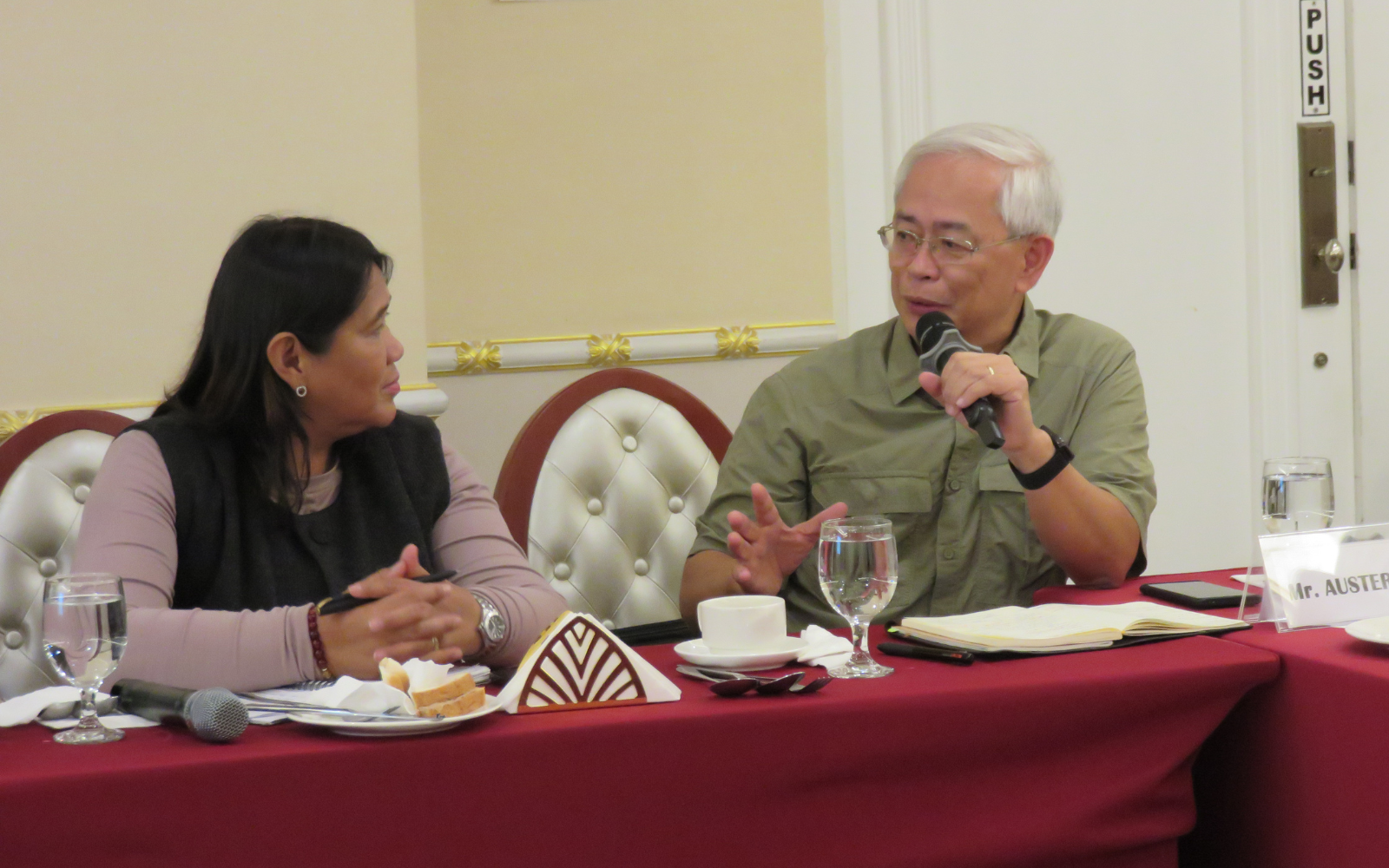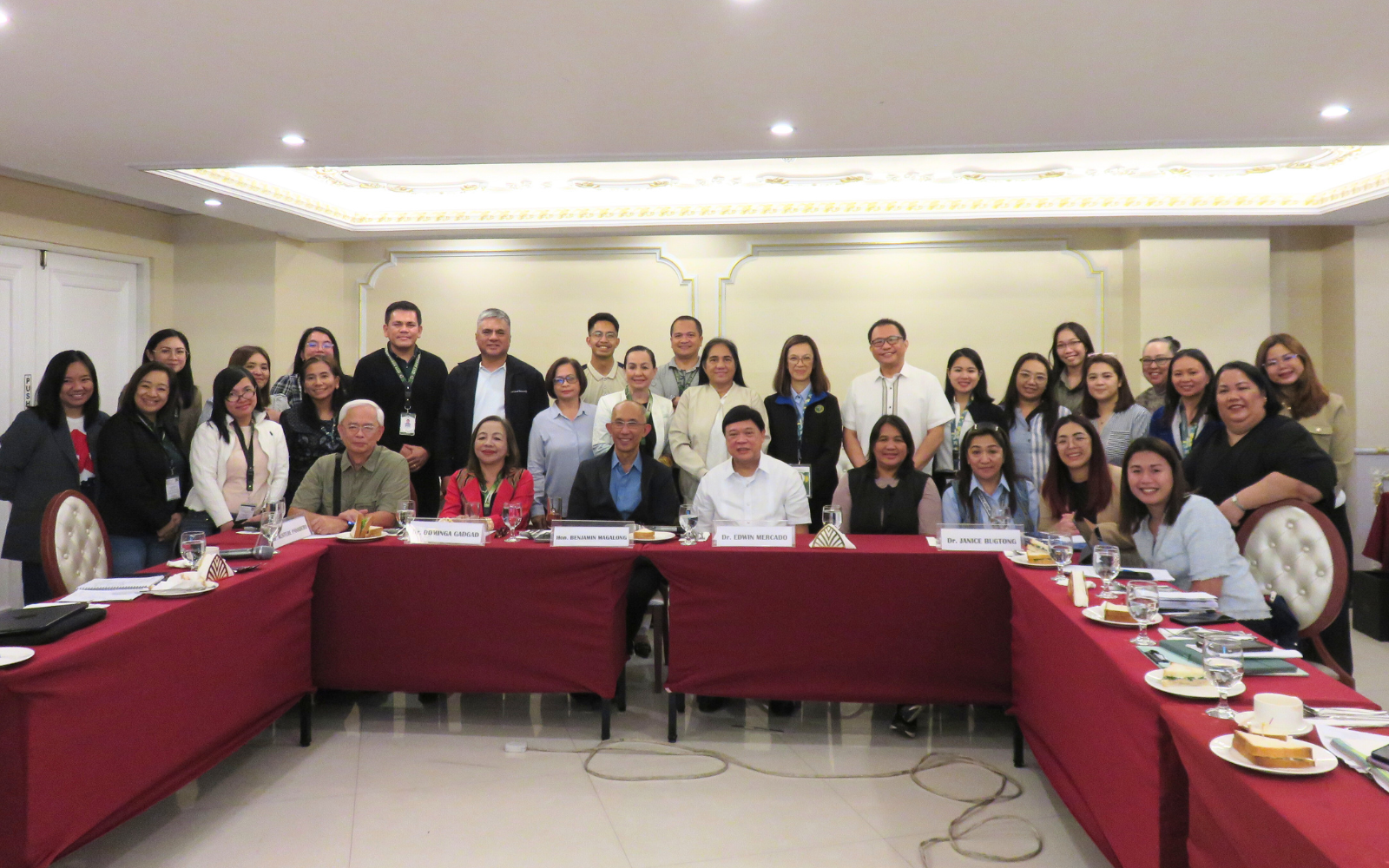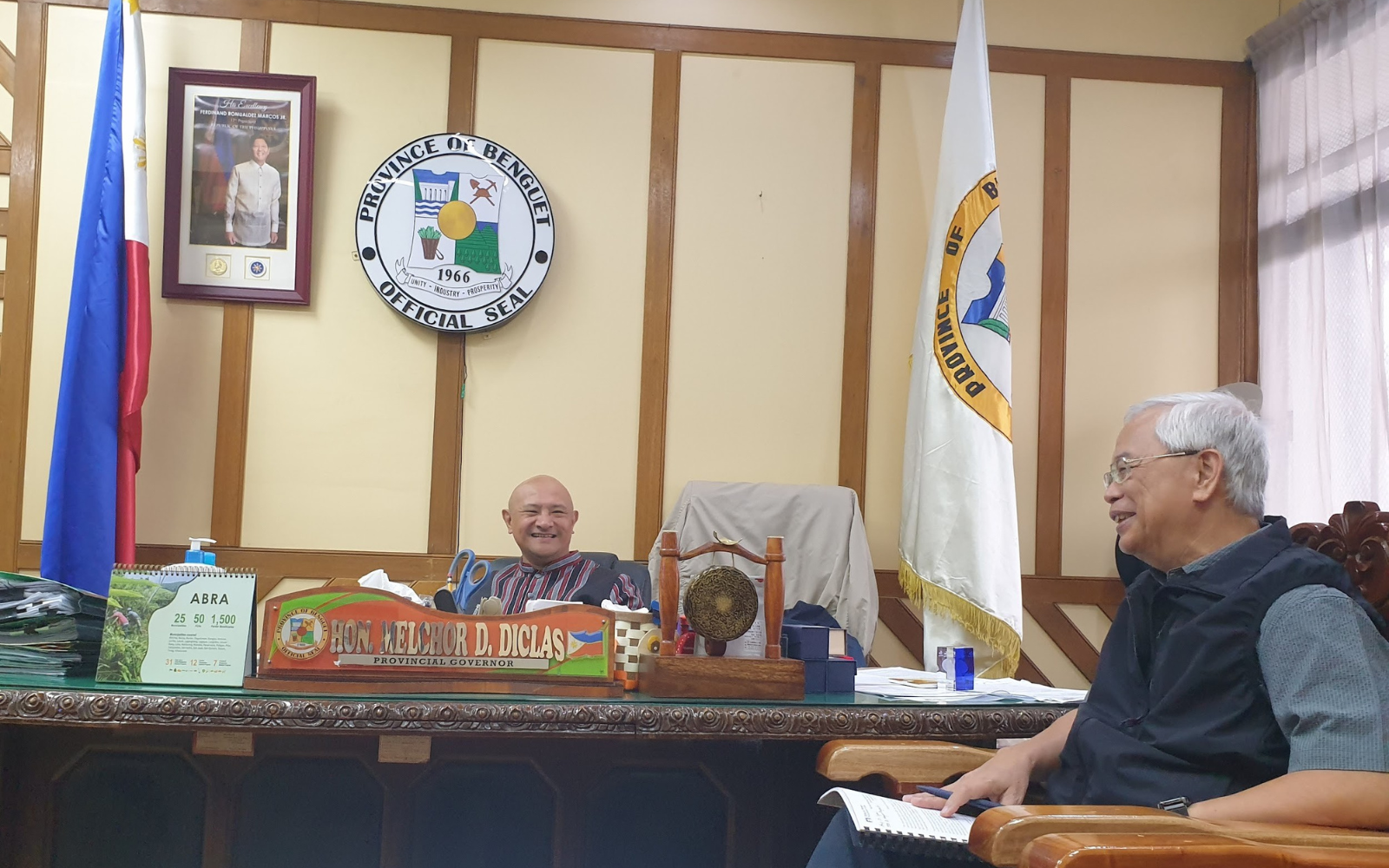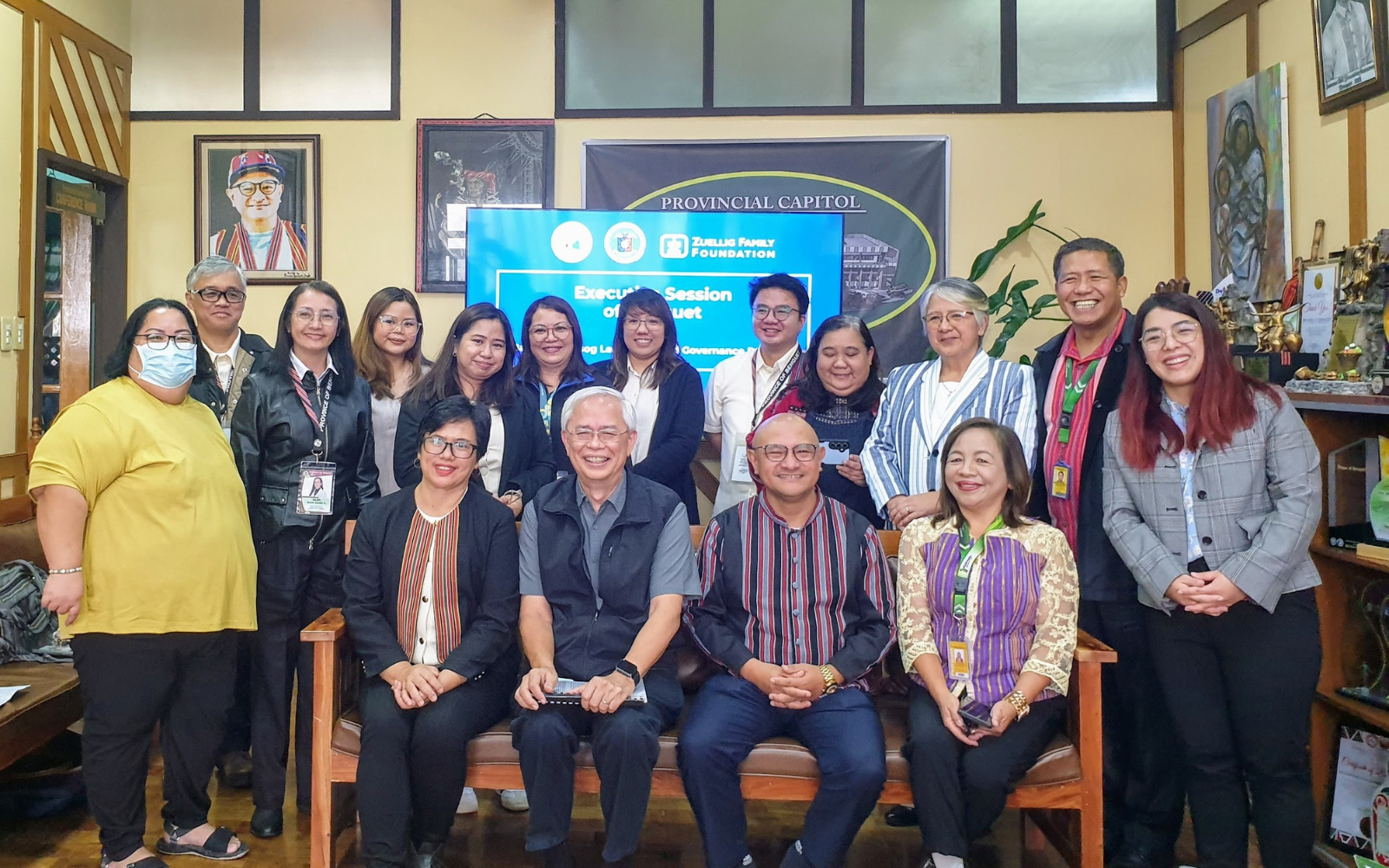Baguio City Advance Universal Health Plans
Baguio City is moving closer to making Universal Health Care (UHC) a reality.
Dr. Catherine Chung, Local Health Systems Director at Zuellig Family Foundation’s (ZFF) Director, noted that the city has nearly completed the accreditation of all its district health centers under PhilHealth’s Yaman ng Kalusugan Program (YAKAP). Only two centers remain, while the city is also improving its electronic medical records and preparing to operationalize contracts with three private hospitals. These steps, she said, put Baguio in a strong position to shift toward a mixed health provider network that uses both public and private facilities.
These insights came during the Executive Session for Mayor Benjamin “Benjie” Magalong on August 12, 2025, organized by ZFF through its Bayang Malusog Leadership and Governance Program.

City Health Officer Dr. Celia Flor Brillantes laid out Baguio’s roadmap to UHC. PhilHealth President and CEO Dr. Edwin Mercado shared updates on YAKAP and advised the city to prepare solid contracting rules, clear fund-sharing arrangements, and even explore public-private partnership models. Austere Panadero, ZFF President and Executive Director, reminded the group of the urgency of their shared task, stressing: “We need to reach more, serve more. We need to prepare the system.” The Department of Health (DOH)-CAR also committed its full support.
Dr. Chung underscored that while Baguio is ahead, the transition will not be easy. Building a mixed-provider network demands strong governance, especially in handling contracts and finances. There is a need for local accountability systems to ensure that health funds are used properly and transparently. At the same time, she affirmed that Baguio has the right building blocks—committed leadership, technical support from PhilHealth and DOH, and active collaboration with partners.
With these efforts, Baguio City is showing that local governments can lead the way in building a health system that truly works for every resident.
Making Health a Shared Mission in Benguet
“We commit again that we will continue prioritizing health. Tuloy-tuloy tayo dito.” – Hon. Melchor Diclas, Benguet Governor
In local governments, health often competes with other urgent needs. For health officers, one big question remains: How can we make sure that political leaders keep prioritizing health—now and in the future? For the Provincial Health Office (PHO) of Benguet, the answer lies in co-creation of solutions and pathways.
A Shared Journey for Health
Benguet, led by Governor Melchor Diclas and Dr. Meliarazon Dulay, is part of the Bayang Malusog Leadership and Governance Program (BMLGP). The program is supported by the Zuellig Family Foundation (ZFF) and the Department of Health-Cordillera Administrative Region (DOH-CAR).
Now in its second cycle, the PHO has gone beyond workshops. They have built a strong shared vision, aligned their values, and created a clear plan for the next three years. They call it the Healthier Benguet Roadmap.
In one key session, ZFF facilitated a reflective activity based on ikigai—a Japanese concept about purpose. It helped the Benguet health team reconnect with why they chose public health in the first place. “What I love about being in public health service is knowing people, their story, and being able to help them,” said one participant.
Governor Diclas: Leading with Purpose
On July 21, 2025, the Benguet health team presented the roadmap to Governor Diclas. He responded with clear and strong support.
He stressed the need for alignment with Benguet’s mayors. “Kung iba-iba ang priorities natin, hindi tayo makakapagtulong-tulungan,” he said, “Let us convince everyone to prioritize health.” He also suggested enrolling all newly elected mayors, and those who missed the first round, in the Bayong Malusog Municipal Leadership and Development Program.
Now on his third term, Governor Diclas’ commitment turns the roadmap into a legacy plan, one that could shape health governance in Benguet for years to come.
Related articles:
- Benguet Charts Path to Stronger Health Governance
- Building a Healthier Benguet: Integrating Health Information, Financing, and Service Delivery to Achieving Universal Health Care
The Healthier Benguet Roadmap
The roadmap is both bold and practical. More than just a static plan, the roadmap is a shared promise to make health services better for every resident of Benguet. Among its pillars are:
- Institutionalizing the Healthier Benguet Caravan and SHAYAW (Stellar Health Achievement Yearly Awards), bringing services directly to communities,
- Establishing an integrated Health Care Provider Network (HCPN),
- Strengthening data-driven decision-making at all levels,
- Ensuring sustainable health financing, and
- Expanding community participation and Human Resources for Health (HRH) capacity-building.
Support that Makes a Difference
DOH-CAR continues to give technical support and push for clearer alignment with the national office. PhilHealth helps by sharing data that supports equity and better program decisions.
ZFF, aside from its leadership training, also provides mentoring, coaching, technical sessions, and grants. It is now working on building an executive dashboard to help local leaders make smarter, data-informed choices.
A Call to Co-Create
Benguet is moving forward, and they are inviting everyone to join. Health cannot be improved by the government alone. It takes a whole-of-society effort: national agencies, local leaders, civil society, private organizations, and citizens, all working together.
The roadmap is ready. The leaders are committed. And the people are hopeful.
Authors: Joan Kidatan, ZFF LHS Provincial Associate for Baguio City; Krizzia Esperanza, ZFF Corporate Communications Associate
The Challenge Initiative Colloquium: Maximizing Responsive Leadership and Strengthening Systems
The Zuellig Family Foundation (ZFF), through The Challenge Initiative (TCI)-Philippines, proudly celebrates the graduation of five cities from the TCI program.
On November 28, 2024, during the TCI Graduation Colloquium, Cagayan de Oro, Dipolog, Puerto Princesa (Batch 1), Baguio, and San Jose (Batch 2) shared their success stories, innovations, and lessons learned in addressing challenges related to adolescent health and family planning.
Since 2020, these cities have collaborated with TCI-Philippines, co-managed by the William S. Gates Sr. Institute for Population and Reproductive Health and ZFF, along with the Department of Health and Commission on Population Development. Together, they have worked to create adolescent and youth-friendly communities by empowering local leaders, city teams, master coaches, and youth leaders in bridging leadership and governance. Here’s to their continued success in transforming communities!
READ MORE:
Five Cities Celebrate Milestone in Adolescent Health and Family Planning Efforts


